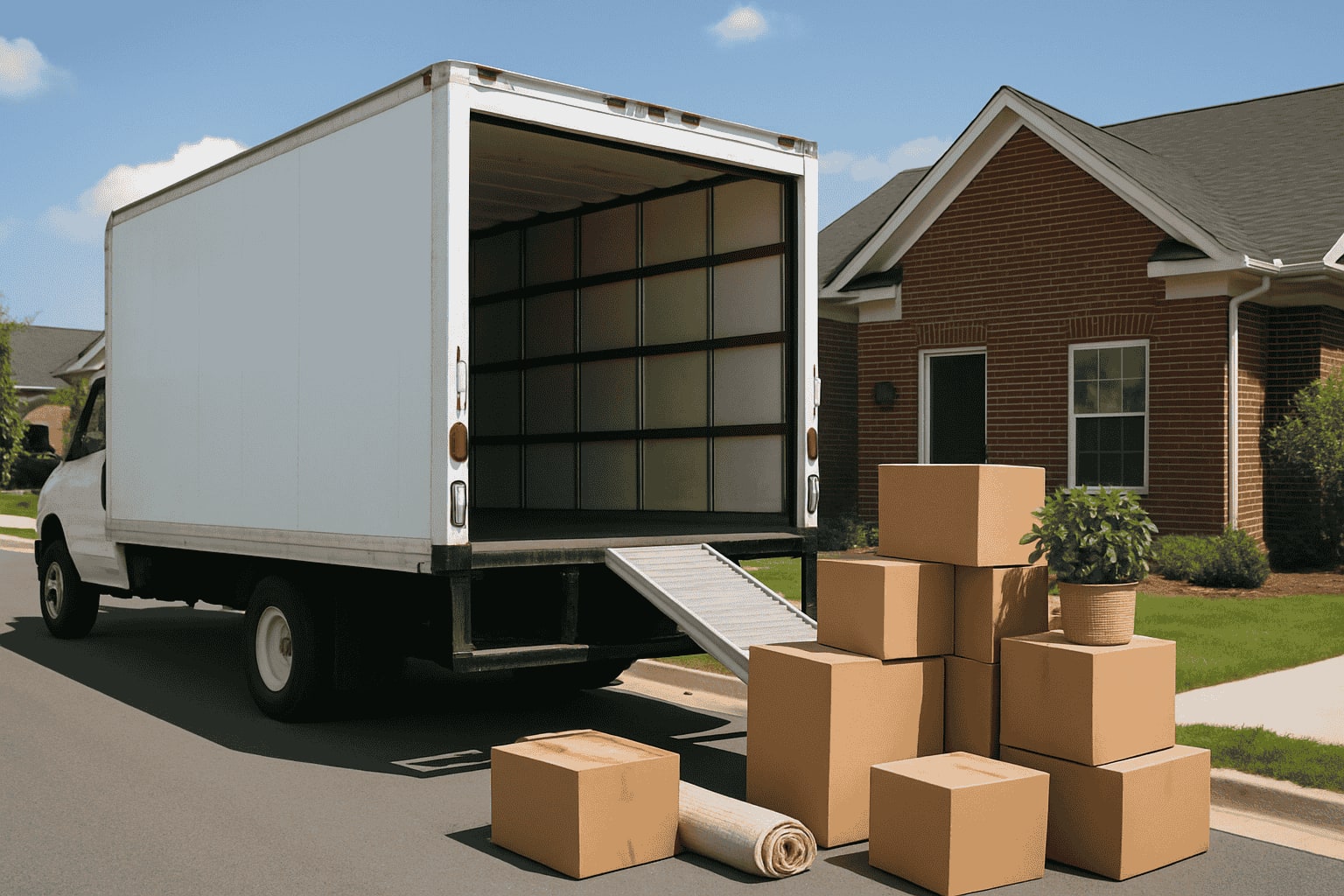As a seasoned relocation expert, I've helped countless clients move globally. My goal is to ensure your move goes off without a hitch. This comprehensive guide shares the insider tips I've learned over the years for choosing trustworthy moving companies.
It's not just about price; it's about avoiding unexpected roadblocks. Use these guidelines as a moving checklist to help you with everything from spotting red flags to understanding certifications. Let's make your car shipping experience a breeze.
» Need to store your stuff? Check out our best moving and storage companies.
Main Factors to Consider When Shipping Your Car
Here's a quick checklist for choosing a car shipping company:
- Pricing: Consider the overall cost and potential hidden fees, like remote location charges.
- Reviews: Use online reviews to spot late shipments, inaccurate tracking, or poor customer service. Check user experiences on sites like TransportReviews.com.
- Differentiation: Evaluate pricing strategies, route formats, and how companies handle damages.
- Specific needs: Ensure they can cater to your needs based on distance, location, and circumstances. Some companies, like Native Van Lines, specialize in car shipping.
- Certifications: Shows that a service like Colonial Van Lines meets industry standards and provides you with the assurance of safe and reliable shipping.
Our 5 Best Car Shipping Companies at a Glance
Open/Enclosed Shipping Options
Local and National Transit
How to Spot a Reputable Company
Look for Proper Certification
When researching companies, verify their valid USDOT numbers and operating authority with the Federal Motor Carrier Safety Administration (FMCSA). This shows they meet federal regulations for safety and insurance.
You can check their USDOT like this:
Confirm Insurance Coverage
Ensure the company has proper insurance, including liability, during the contract process. It's a safety net against unexpected costs if something goes wrong during transit. American Van Lines offers insurance options and has a system for handling claims if there's any damage.
Watch for Red Flags
Watch out for misleading statements about insurance requirements or confusing technical jargon. A reliable company like New Start Relocation keeps details transparent and straightforward.
Check Driver Credentials
Make sure the driver who'll transport your car has a valid commercial driver's license (CDL). This license proves they're trained and can drive big vehicles like car transporters. Checking this helps ensure your vehicle is in safe hands.
Go With Experience
Companies with more experience often know how to handle different situations better and can provide more reliable service. This means they're more likely to deliver your car safely and on schedule. For example, North American Moving Services has been in business for almost 90 years.
» Unsure about your movers' credentials? Learn how to verify your shipping company.
Step-by-Step Process to Prep Your Car for Shipping
Follow these steps to get your car ready for transit:
- Collect essential documents like the title, proof of ownership, registration, and proof of insurance.
- Discuss your schedule with the company for pickup and delivery planning.
- Clean your vehicle inside and out, remove all items, turn off the car alarm, and check tire pressure.
- Lock the car before transport; the company shouldn't need to open it during transit.
Where to Get Insurance Help
AmeriSafe Moving and Allied Van Lines offer additional insurance options like gap and cargo damage. So, unexpected incidents during transport are covered, providing an extra layer of protection and peace of mind.
Understand the details of gap insurance, no matter who you choose. An insurance plan tailored to your needs ensures comprehensive coverage in case something unexpected happens—for instance, extreme weather or shifting in transit damage.
» Relocating on a budget? Here's how to save money when you move.
Car Shipping Challenges and How to Overcome Them
Tracking and Timeliness
Common issues include tracking problems and delays due to weather, driver schedules, or drop-off complications. Remember to monitor your vehicle's progress and contact the transport company for updates, especially during bad weather or busy schedules.
Vehicle Condition
Inspect your vehicle carefully for damage when you receive it. If you find any damage, address it with the transport company before signing off on the delivery.
If the mover doesn’t pay for damage or loss, you may settle it through arbitration or court. Check your contract and collect proof of any damage, like photos, receipts, lists, and emails. Additionally, consider writing a review on the Better Business Bureau (BBB) site to assist others in making informed decisions.
Communication Concerns
Poor communication from the company, such as unclear instructions or unresponsive customer service, can cause frustration and confusion. Set up clear communication early on and reach out for clarification or updates as needed. If you still have issues, contact the insurance provider before the shipment.
How to Save Costs and Avoid Hidden Fees
Open Shipping vs. Enclosed Shipping
In open shipping, the company loads your car onto an open trailer, exposing it to the elements and making it visible during the journey. This is the more common and economical option.
On the other hand, Enclosed shipping involves transporting your car in a closed trailer. This provides an extra layer of protection against the elements but is typically more expensive.
Shipping Costs and Distance
The cost of shipping your car depends on how far it needs to go. For long trips, you often pay less per mile, which can save you money. But for short trips, the price can change a lot. There's no set rate per mile, so it's best to get a specific quote for your trip.
Hidden Fees
Before signing the contract, discuss potential charges with the company. Clarify all the details upfront so there are no surprises along the way, like additional fuel charges or expedited fees. Some services may charge more for door-to-door delivery, terminal-to-terminal drop-off, or insurance coverage.
Additional Tips to Save Money on Car Shipping
- Book in advance: Book your car shipment in advance to help you save money. The best car shipping companies offer discounts for early bookings.
- Compare quotes: Be sure to get binding quotes in writing to compare costs. Quotes will vary based on factors like transport distance and vehicle type.
- Choose the right time: Shipping your car during peak season (May to September) can be more expensive than shipping it during off-peak season (October to April).
- Be flexible: You can save money by adjusting your pickup and delivery dates. Many services offer discounts for adaptable scheduling.
Get the Timing Right for Shipping Your Car
When shipping your vehicle, timing is critical to an efficient process. Here's what you need to know:
- Plan ahead: Start by discussing the expected departure and arrival dates. Remember, flexibility can be helpful in case of unforeseen delays like road maintenance.
- Understand setbacks: Weather, traffic, and logistical challenges can affect timings. An organized company will keep you informed, but having a buffer in your schedule is wise.
- Tracking your vehicle: Opt for a company that offers real-time tracking. This feature allows you to monitor your vehicle’s journey and gives you a more precise arrival time.
- Communication is vital: Clear and constant communication will help manage expectations and update you on any changes.
- Prepare for arrival: Be available or designate someone trustworthy to receive the vehicle. Ensure they understand the inspection process to check for any damages.
Final Mile: Cruise to Car Shipping Success
A stress-free car shipping experience hinges on choosing a reliable company and being well-prepared. Explore tailored services that will fit your specific needs. With careful planning and clear communication, your vehicle's journey can be a smooth, worry-free success.
» Had a successful transit? This is how much you should tip movers.



